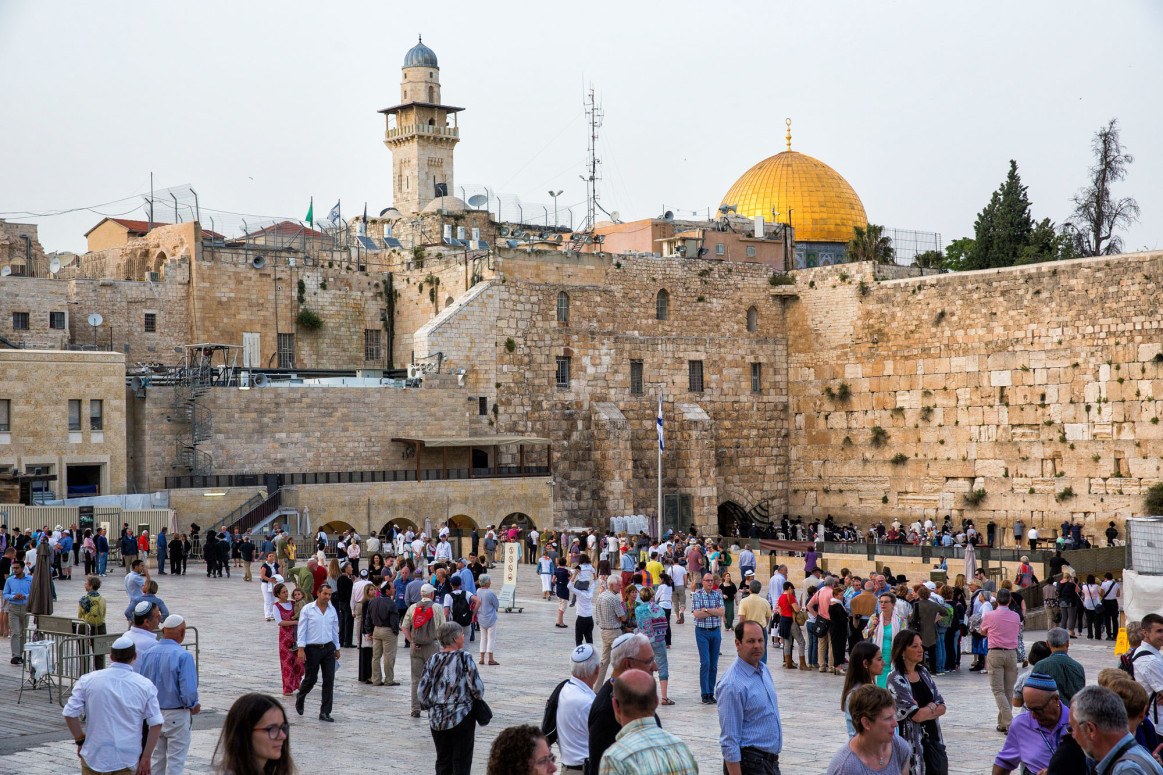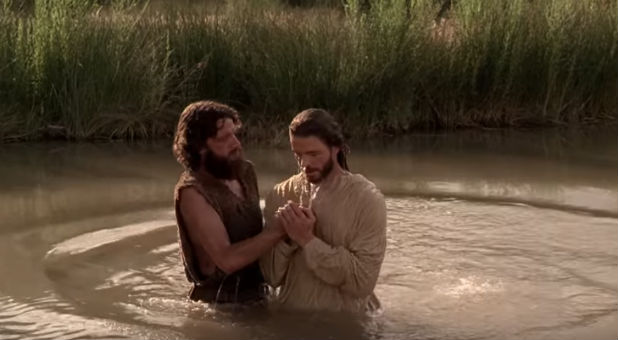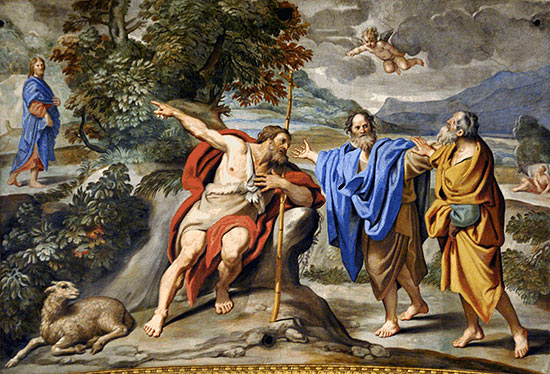Reflection for the Solemnity of the Birth of John the Baptist. Year B. 2018
– By Fr Ugo Ikwuka
Archway, London
“What’s in a name?” Juliet famously asked Romeo in Shakespeare’s Romeo and Juliet: “That which we call a rose, by any other name would smell as sweet.”
Well, not so in Bible times and in some ethnic societies today where personal names function the way business names and slogans do; conveying what the bearer of the name stands for.
When Simon (Peter) demonstrated leadership qualities among the apostles, he gets the name “Rock.”
When James and John, the sons of Zebedee petitioned Jesus to call down lightning on a Samaritan village that did not welcome Jesus, they get a new name “Sons of Thunder.”
Names therefore reveal an essential character or destiny of the bearer.
This Sunday’s Gospel which is about the birth of John the Baptist focuses on his naming ceremony. The name John means “God is gracious”.
His birth signals the beginning of a new era in the relationship between God and humans; an era to be characterised by grace and not by law. God himself gave John that name before he was born and it was revealed to his father Zachary in a vision (Luke 1:13).
This shows that God has a purpose and plan for the child even before he was born. This is echoed in the prophecy of Isaiah in the First Reading: “The Lord called me before I was born, while I was in my mother’s womb he named me.… He formed me in the womb to be his servant (Isaiah 49:1,5).

John’s father Zachary was a practising Temple priest while his mother Elizabeth was a descendant of the family of Aaron, the first priest of Israel. Thus, John was a very priestly stock and must have been very conversant with the Temple rituals. Yet, he strangely abandoned the Temple for the desert! Why?
Well, a succession of prophets had criticised the Temple for the corruption going on there with Ezekiel daring to say that the glory of Yahweh (God) left the Temple (Ezek 10:18). What should be a place of praise and worship became a corrupt business centre littered with money changers’ tables.
At the time, the Jewish “ascetic monks” (the Essenes) who strongly condemn the corrupt Temple had fled to the desert around the Dead Sea to set up an alternative community. John was thought to have joined this group which possibly explains why the Gospels report that he was in the desert until his public ministry (Luke 1:80). It was in the desert that his conviction on the renewal of the Temple grew.
Commencing his public ministry, John draws people away from Jerusalem – the centre of Jewish life, out into the desert to see and hear him. How strange since everything in Jewish life moves towards Jerusalem and the Temple where “all the tribes go up” for the great festivals.

This son of a priest offers baptism for the forgiveness of people’s sins; the forgiveness the Temple ought to offer but wasn’t. Moreover, he baptises by the River Jordan which the Jews crossed to arrive at the Promised Land following their liberation from Egyptian slavery. In so doing, John signifies that the ultimate liberation is freedom from sin which still holds people in spiritual bondage.
Yet, quite remarkably, he did not draw attention to himself, rather, he consistently presented himself as only a forerunner, a prophet preparing the way for someone greater: “I baptise with water, but one more powerful than I is coming, he will baptise you with the Holy Spirit and with fire.” (Luke 3:16).
How powerful it was therefore that when he spotted Jesus coming for baptism he declares: “Behold the lamb of God, who takes away the sin of the world”. He was passing judgment on the old Temple but also announcing the arrival of the new and definitive Temple, the place where God and humanity will be ultimately reconciled – Jesus (on the cross).

Thus, John’s mission is fully mapped out before his birth. As his father Zachary sang: “And you, child, will be called the prophet of the Most High God, for you will go before the Lord to prepare his ways.”
In John therefore, we see that God already has a purpose for His children before they come into this world. Hence, the challenge of life is to discover this purpose and be faithful to its demands. On this depends one’s happiness.
Like John therefore, attaining the purpose for which God created one may require that one takes an unfamiliar path. It may entail defying or going against family vision or tradition.
This was the case with John where the common view of the relatives was that he be given his father’s name “Zachary” not John, because none of his relatives bears the name John (Luke 1:61). They could have unwittingly prevented John from receiving his God-given name and identity.
God’s dream for us far exceeds family projects. As Carey Landry aptly sang: “The dream I have today, my Lord, is only a shadow of your dreams for me.” Our life’s work is to wake up and make God’s glorious dream for us a reality.

PS: God’s naming of John before his birth also has a message for those who support abortion with the suggestion that a child acquires the dignity of a person only at birth or at the stage of development recognized by the authorities.
Scientific knowledge shows that rightly understood, the embryo is not “a potential human being” but a human being full of potentials. In the embryo, the whole human being is projected in each tiny detail. To this, our faith adds that what we have is not some unknown project of nature but a project of the creator’s love.





I found this a very helpful post. Thank you.